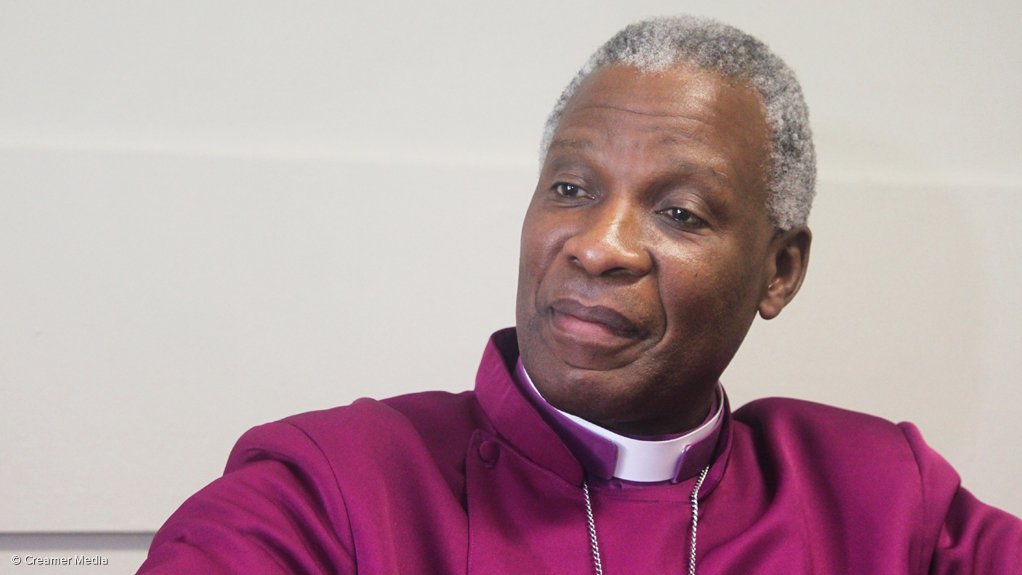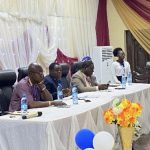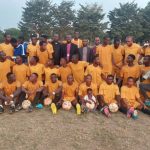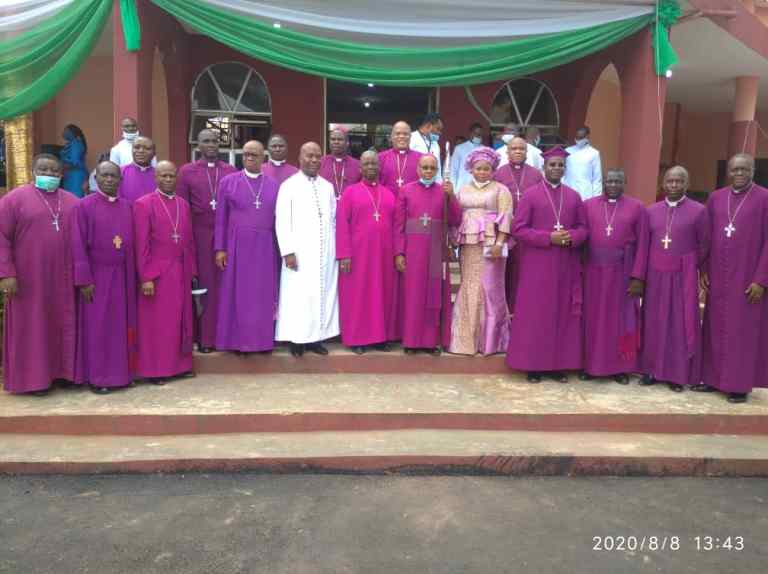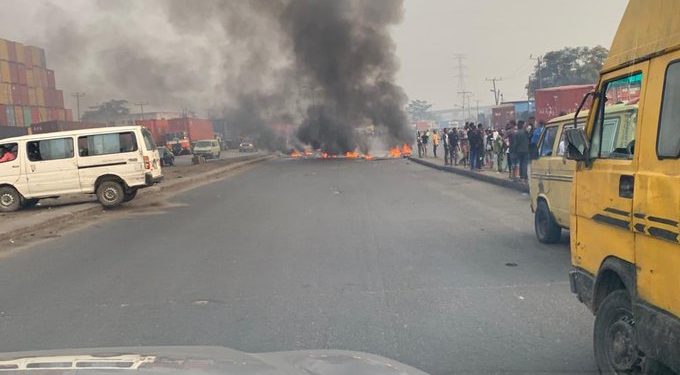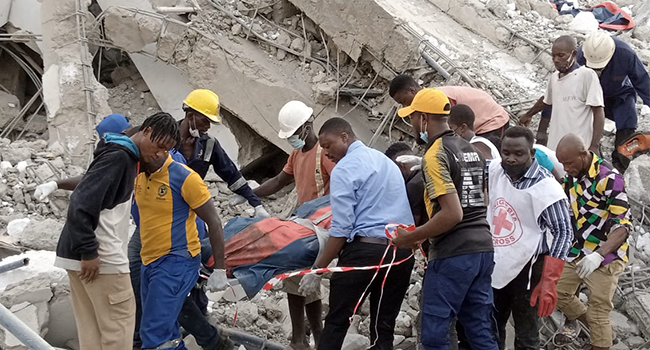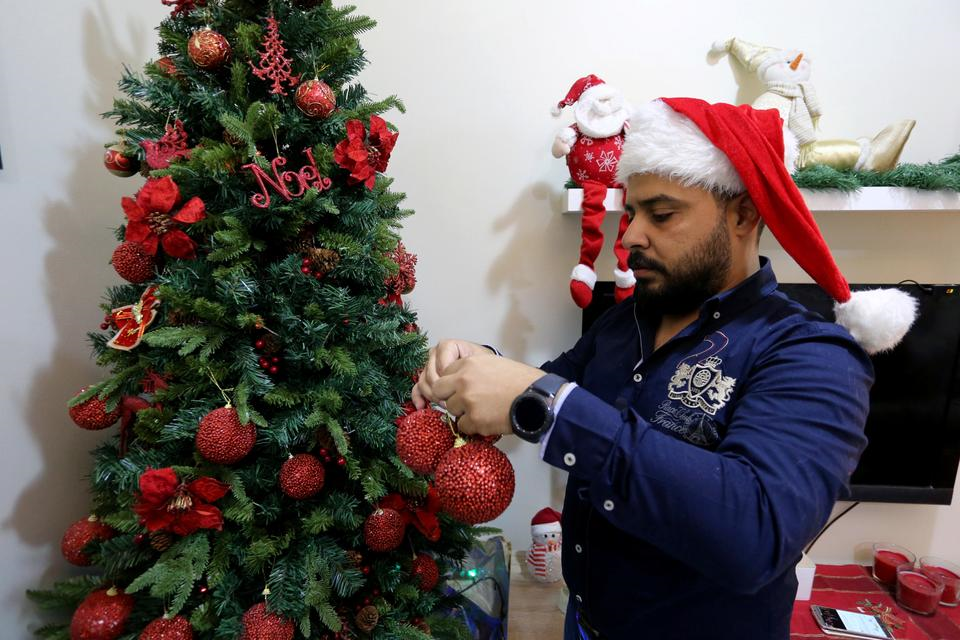The All Africa Conference of Churches, the continent’s leading Protestant ecumenical body, has conferred its Human Rights Award on Archbishop Thabo Makgoba of Cape Town.
Conferring the award at the conference’s general assembly in Abuja, Nigeria, this week, it praised Makgoba in particular for his advocacy of the interests of the poor.
“Although South Africa has a sound Constitution and a relatively well-developed economy, it remains a deeply divided society, wherein a high proportion of the country’s income is earned by a few and a small proportion is earned by the vast majority,” the citation for the award said.
It added that in the tradition of outspoken church leaders who campaigned against apartheid, Makgoba “chose to speak out and advocate publicly against an economy in which wealth is passed on from generation to generation, while the poor are excluded from the benefits of the economy.”
The AACC also cited Archbishop Makgoba’s “walks of witness” with other religious leaders to areas in which people are suffering, and his marches with other faith leaders against corruption.
It noted that Makgoba experienced animosity from political leaders who told church leaders to keep religion out of politics. The citation said he addressed this “by rejecting the worldview of distinguishing between religion and politics, and adopting the African worldview, which he thinks teaches that God is the God of all life, religious or political.”
Text of the archbishop’s speech:
To God be the glory! Thank you so much, I am humbled and deeply touched by the affirmation and honour of being the recipient of this prestigious AACC Human Rights Award.
Congratulations to the AACC on your 60th anniversary, on this 12th Assembly and on establishing this award. Thanks to the President, the Secretary General, the Awards Committee in particular and for those who nominated me and interviewed me. I receive this honour and award on behalf of the many whose rights are trampled and the many in our churches across this great continent who work tirelessly to ensure democracy, governance, human rights and the rule of law are upheld.
In one of my responses to the interviewers, I said that “At the heart of the church’s advocacy of Democracy, Human Rights, Good Governance and the Rule of Law is our care for God’s people, for their welfare, their safety and their inclusion in the kind of economic and social development which will ensure the abundant life which our Saviour promises them.”
For me, my public ministry over the years has centred on carrying out walks of witness, and working within a prophetic theological framework which I call the new struggle.
Walks of witness entail literally walking together with my fellow pastors through places where people live in squalor – amongst the excluded, those on the periphery of society. In the latest example, I joined other church leaders in Johannesburg on a walk of witness to the scene of a devastating building fire which killed more than 70 people. The people in that overcrowded five-storey home lived in a so-called “Mnyama ndawo”, a “dark place”, an abandoned, dilapidated building without running water, electricity or sanitation, where rubbish piled up and rats ran through stagnant water. Many of those affected were migrants from other parts of our continent, drawn to the so-called “City of Gold” by dreams of a better future. Their plight highlighted the sin of xenophobia in South Africa, where foreigners are often forced to live in run-down ghettos because they are not welcome in our communities. The church should be a safe space for all the nations, yet we often find that people of other nations are not welcomed.
Then, in the spirit of the old church struggle against apartheid, we have adopted the concept of the new struggle to call upon political elites to be accountable to voters and, instead of pocketing the wealth of their countries, to govern in the interests of the poorest of the poor. In South Africa, we say that the new struggle is a new struggle for a new era, a new struggle for a new generation, a struggle to regain our moral compass in the face of the corruption that now plagues our country, a struggle to end the economic inequality we inherited from colonialism and apartheid, and a struggle to ensure that the promises of our Constitution are kept. And I am hopeful that if the churches, other religious bodies and civil society join this struggle, we can succeed in turning South Africa around and putting us back on the path on which Nelson Mandela set us.
My concern is not limited to shouting from the rooftops. I also urge those who hold economic power to conduct their business in the interests of the communities in which they work, for example by getting mining houses to build toilets in schools without sanitation.
In a number of cases, my advocacy has concerned situations outside South Africa. Just before last Christmas I visited Ukraine to express our solidarity with that country in the face of an external invasion. In the last few weeks, in my own Diocese of Cape Town, where we also have large Muslim and Jewish communities, we have seen a number of protests over the war in Gaza. I have condemned all violence against civilians, whether it is in Gaza, the West Bank of the Jordan or Israel, and called for a solution in the Holy Land which will bring justice to the Palestinians and security for all who live in the region. I have also advocated boycotts of those who supply arms to the Middle East, including those in the West.
But it is also important that we speak out on issues in other countries on our own continent. Analysts tell us that people are in armed conflict with one another in more than 40 countries in the world, and – as a number of those attending this assembly can tell us – a number of those are in Africa. Right now, as the Global North focuses on conflict in the Middle East, the world is not giving enough attention to Sudan, where fighting between the regular army and the paramilitary RSF is devastating the country. The United Nations tells us that this war has killed more than 9,000 people since April, and has forced more than five-and-a-half million to flee their homes. We have also seen the re-emergence of military coups, especially in West Africa, starting in Mali three years ago, and spreading since to Chad, Guinea, Burkina Faso, Niger and Gabon. Sadly, some of those countries have been subjected to multiple coups, and even more sadly, we are told that some of the coups are a result of the failure of civilian governments.
To conclude: As pastors concerned for the welfare of God’s people, the new struggle, our neighbours far and near, we are constantly challenged to ask: Where is the body of Christ when our sisters and brothers are in pain?
It is my hope that as recipient of this Award, I will continue to play my part, and that the existence of the Award will ensure that we all continue to give a high priority to working to ensure that the God-given rights of all God’s children, in Africa and beyond, are respected by governments and other actors in society.
Africa, my home and my future, I thank you.


